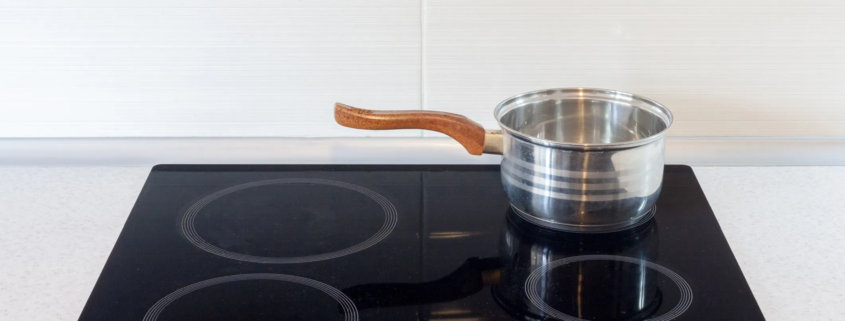Gas Stoves vs. Electric: Which Is Right for You?
Should You Continue to Use a Gas Stove in Your Home?
Electric stoves are becoming increasingly common in homes throughout the U.S. They are more energy efficient than gas stoves and offer numerous health and environmental benefits. However, many people remain loyal to their gas stoves. Learn the differences between gas stoves and electric stovetops to find the right appliance for you.
Gas Stoves
If you have a gas stovetop, you’re probably used to hearing “clicks” before the flame emerges. This can be quite satisfying. You can heat your food in a matter of seconds instead of waiting for the burner to warm up. Gas stoves also heat the pan more evenly, applying direct heat to all sides of the pan. Today, around 40% of homes have gas stoves. Many homeowners have kept their old stovetop for years despite the advantages of going electric.
These stoves run on natural gas. When you turn on the stove, the gas sparks a flame. This releases hazardous particles into the air. Over 90% of gas-powered appliances in California residences emit toxic pollutants such as carbon monoxide (CO), nitrogen oxides (NOx), particulate matter and formaldehyde, according to the University of California Los Angeles (UCLA). Many gas-powered appliances emit these toxins, including water heaters and gas furnaces, but these appliances are connected to the outdoors. Gas stoves releases these toxins into your home, usually with little to no ventilation.
This can be particularly harmful for those with respiratory conditions, including asthma and lung cancer. They can also increase the risk of cardiovascular disease and respiratory illness. Gas stoves release carbon monoxide into the home, which can be fatal in large quantities. Exposure can lead to dizziness, fatigue, nausea, and fainting.
Electrical Stoves
Electric stoves don’t use combustion as part of the cooking process. They run on electricity, just like many of the other appliances in your home. You can use clean energy to power your electrical stove instead of relying on fossil fuels. Electric stoves use thermal conduction to heat up your food. Electricity runs through electric coils laying just beneath the stovetop. This can create cold spots on the surface. The burner will be hottest near the location of the coils, so the pan may not heat as evenly.
However, electric stoves are much safer than their gas-powered counterparts. They don’t release harmful toxins into the air that can affect your health. They also reduce the chances of burning and injury when cooking. You don’t have to worry about accidentally getting too close to the open flame.
Should You Repair Your Gas Stovetop?
Considering the benefits of electric stoves, you might want to consider swapping out your gas stove for a more energy-efficient model if your stove needs repair. You might save money in the long run by reducing your dependence on fossil fuels. If you or someone you live with has a respiratory condition, consider upgrading your stovetop to improve the air quality in your home.
If you choose to keep your gas stove, open the windows as much as possible and turn on the fan to remove these particles from the air. Limit your time in the kitchen when the flame is on to reduce your exposure.
Contact the professionals at Absolute Appliance Repair in San Francisco to learn more about repairing your gas stove. We will walk you through your options, so you can make the right choice for you and your loved ones.




